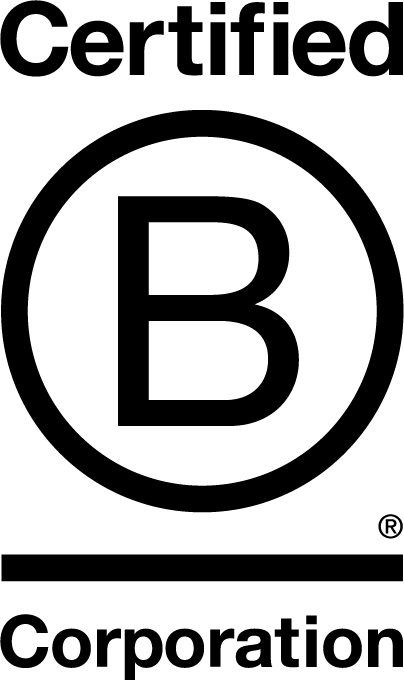7 Traits of an Improver
Blog 2 in the Quality Matters: From Insight to Impact series

Quality Improvement (QI) is critical to delivering on the NHS Plan. This series of articles from Associate Directors, Ian and Laura, provides a personal and practical insight into how QI is needed more than ever.
Veran Patel, Director, Health & Social Care
We have worked with and trained many people in improvement, from career improvers to those thrust into it, perhaps somewhat unwittingly. We are often asked what we think the competencies are of good improvers and how we might identify potential recruits. For years we shrugged, not wanting to commit to a banal list of attributes that would likely be misunderstood, whilst recognising a message of ‘find interesting people who say challenging things’ might also be less than helpful.
So, after great thought and much deliberation, here is our list. We’re not quite sure what it is a list of, perhaps more trait than competency, but if it helps people identify potential and perhaps more so, better understand people in the improvement space, then that is good.
- Curiosity. Curiosity is top of the list because without this there can be no improvement, and it is no surprise we see ‘curiosity’ often mentioned in lists of skills and attributes of leaders and improvers. Curiosity provides us with sufficient interest to make us question ‘why?’ and want to explore further. The good news is we are all curious and it is a human trait we all possess. So, perhaps it is not so much about curiosity itself but what we are curious about and to what degree? And that might be problematic, because what we individually find interesting may be innate or developed at an early age – perhaps we can no more instil an interest in improvement where it is not naturally present, than we can develop enjoyment of a particular sport where there is none. For that reason alone, you should recruit and mobilise people who want to improve, rather than force improvement upon the less willing.
- Intolerance of the status quo. I can best sum up my own innate interest and curiosity in improvement by an observation once made about me: ‘the world is never going to be good enough for you’. It was a plea for me to try and accept the way at least some things are, believing this might make my life more contented. Someone else shared with me the serenity prayer, hoping it would do the same – you know the one, accept the things you cannot control, etc. Whilst well meaning, they made no difference – I cannot help but see things I consider wrong, broken or sub-optimal, and be immediately filled with a strong urge to understand it to the point of fixing. It might be something I see or experience in healthcare – certainly whilst at work – but it could just as easily be the layout of a supermarket self-service till, the lack of a menu option in a restaurant or a misleading road sign. At times it is a curse. Those that know me less well might view this as me being ‘negative’ or ‘picking fault’ but it isn’t – rather it is me not wanting to accept the status quo and striving to make the world a better place.
- Improvement thinking. Improvement thinking, and the methodologies and principles that support it, often encompass both the ‘process of improvement’ and most critically, the ‘design principles of effective and efficient working’. Improvers hold tight to this thinking and may do so to such an extent that others view this as some sort of cult-like fixation – I think that a little unfair, but I would agree that it is certainly doctrine. But surely, sticking to the evidence of improvement is normal behaviour and no more a fixation than we see in other professions applying scientific or other rules, such as doctors, engineers, accountants and lawyers. The ‘laws’ of improvement help explain the world as it is and offer evidence-based direction as to how that might be improved, so it is only natural that improvers hang on to those laws. And for clarity, improvers might well align with improvement thinking long before anyone has formally laid it before them – that is, it is often their natural way of thinking and doing; they might find it useful to have the framework of a methodology, to put a name to something, or to access a tool that helps, but the seed of the thinking is often already there.
- Swimming upstream. One of the unescapable realities of being an improver is that your fundamental beliefs often jar against many of the accepted norms that prevail current systems, processes and ways of thinking – hence the need for improvement in the first place. So, improvers might feel as though they are simultaneously operating in a sea of opportunity but on a ship that does not wish to alter course, perhaps not even a little. It is a difficult place to be and for sure improvers need to be resilient and determined to make headway. They also need to be optimistic and hopeful, both for themselves and for those who rally to their call. They need to be able to exert influence directly and in more canny ways. They require a level of diplomacy for things that do not matter so much, and a whole chunk of courage to avoid compromise for those things that do matter. At times they might have to fight or find another ship. Sadly, some give up and withdraw.
- Analytical by nature. There is no getting away from it, to be good at improvement we have to have good analytical skills, be good with numbers and be able to apply some maths. This helps us understand, measure and explain with some level of confidence, how various factors interrelate to create the situation we currently face. Equally, it helps us determine what needs to change and critically, whether a proposed change is likely to make a difference. Sadly, our general standard of maths and analytical skills in the UK is fairly poor and for many, having to do a relatively simple calculation might strike as much fear in them as singing in front of an audience. So, you might have to buddy people up or wrap some good maths and analytical skills around improvers – organisations often have such skilled people in Business Intelligence teams but in our experience those people can be very difficult to release from their core task of producing performance-related reports; how much more valuable might they be if deployed to improve, rather than report, performance?
- Experience. Chihiro Nakao said you can be educated in improvement in 7 days, but it takes 10,000 days of practice to master it. The good news is that after only one week you can start practicing and, like many things, the more you do so the more you learn and the better you become. But the experience gap should be noted, and we should temper the expectation we have of people recently trained or with relatively little improvement experience. More so, we should support our improvers, nurture them, coach them, encourage them. They are treasure.
- No room for ‘toolheads’. My father worked as an electrician on the railways, but I saw most of his electrician skills in action at home. There was a steady flow of people arriving at our house with broken electrical items saying, “can you take a look at this, I’ve had a look myself and tried to fix it” to which my father would reply, “having a screwdriver does not make you an electrician!”. I see something similar in the world of improvement. We are often asked, ‘do you have a tool we could have?’ or ‘could you teach us how to use that tool?’. This suggests a level of belief that equipping people with improvement tools takes them much the way to being an improver – and for balance there are some people in improvement positions who might agree. Unfortunately, this is not the case and whilst tools of course might help and have a use – just as a screwdriver might be helpful to an electrician – without the other traits outlined here, those mechanistic tools might be at best useless and at times dangerous.
So, there it is, we hope it helps. If we were to summarise it into one sentence we’d say again, ‘find interesting people who say challenging things’, then look after them and unleash them.
Laura Woodward and Ian Railton are Quality Improvement (QI) experts and are Associate Directors at TIAA. This series of fortnightly blogs are their insights into a long career and successful track record of working with healthcare organisation to improve productivity and better outcomes for patients.


Click here to read the first blog in the series – Quality Matters: From Insight to Impact; Before solving a problem, you must first understand it


